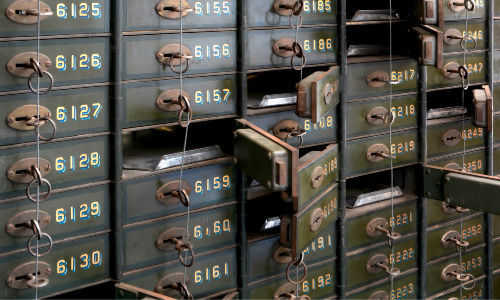Swiss officials have elicited more than $50 billion in hidden assets – from domestic tax cheats coming clean on their hidden accounts.
Swiss cantons have taken in more than 50 billion Swiss francs ($52 billion) in a ten-year amnesty period for domestic tax dodgers and cheats, «Neue Zuercher Zeitung» (behind paywall, in German) reported on Monday. The surprising windfall comes against the backdrop of a tax crackdown on billions held by foreigners in offshore accounts.
It turns out that the alpine nation's abandonment of banking secrecy is having an unexpected side effect at home: Swiss officials are accessing data from their counterparts abroad thanks to new data-swapping agreements. This has prompted 146,000 so-called voluntary disclosure filings, with «tax exiles» rushing to come clean on hidden bank accounts, securities, fine art, and life insurance policies.
Zurich, Geneva Windfalls
According to the Swiss newspaper's tally, Zurich and Geneva made for the biggest chunks, with 9.6 billion francs and 9.2 billion francs in newly-declared assets, respectively. Swiss taxes are largely based on an honors system: taxpayers declare their assets, and audits or any form of spot checks are rare.
In 2010, Swiss officials introduced a one-time disclosure for taxpayers to come clean, without any punishment. Switzerland's 26 cantons recorded a 4.4 billion franc tax windfall as a result of the amnesty.
Swiss More Honest?
The windfall undermines a school of thought prevalent in Switzerland that Swiss taxpayers are in principle more honest and forthcoming than foreigners with offshore accounts, KPMG tax expert Philipp Zuend told the outlet.
Two-thirds of all the self-declarations were made between 2016 and 2018, shortly after Switzerland inked an agreement with the European Union to swap confidential client data. This prompted Swiss taxpayers, fearing they would be unmasked through the arrangement, to come clean.
Not Cracking Major Cases
In parallel to the self-disclosure, Swiss officials have begun evaluating data received from their foreign counterparts – many Swiss residents hold assets and in particular real estate in Italy, Portugal, and Spain, as well as in neighboring Germany, Austria, and Liechtenstein.
Frequently, the quality of data delivered requires extensive work to evaluate – and results in small gains only (which would explain why Switzerland hasn't been aggressive in pursuing its own tax dodgers).
Often taxpayers simply forget to declare a life insurance policy, or an investment fund of less than 25,000 francs, according to KMPG's Zuend – hardly the major tax cases that are worthwhile for investigators.
Quirk of Amnesty
Paradoxically, some cantons are taking in reams of admissions of undeclared assets held in Swiss accounts – even though those are still protected by domestic banking secrecy. Taxpayers are increasingly declaring assets like valuable artwork, according to officials.
There are no punitive measures for coming clean, except for paying ten years of back taxes. A quirk of the amnesty is that heirs of undeclared assets merely have to pay three and not ten years of taxes retroactively. This had led some elderly tax dodgers to defer the decision to their next of kin – meaning Swiss tax officials will continue to receive self-declarations in years to come.



































